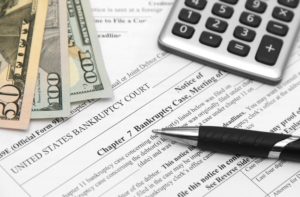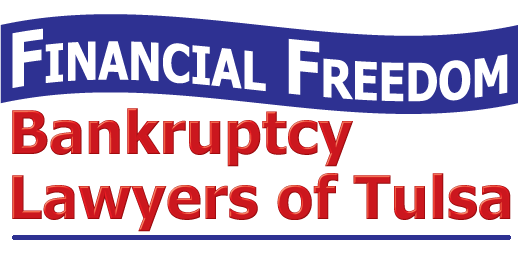Oklahoma Bankruptcy HelpHow to Pass the Chapter 7 Means Test in Oklahoma

Chapter 7 Bankruptcy Means Test in Oklahoma
Debt is unbearable. Most people fall into debt when they are young, not knowing it may follow them for the rest of their lives. Even those who manage to build wonderful lives still feel the effects of debt. If your debt is becoming too much for you to bear, bankruptcy may be a valid option. However, before you can file for bankruptcy, the Oklahoma Chapter 7 means test determines who qualifies.
Income Limits in the Means Test
Income Limits to the Oklahoma Chapter 7 Means Test
The government uses a Chapter 7 means test to determine who is eligible for bankruptcy. The test works by calculating the value of a person’s property, how much money they make, and how the two correlate.
Annual gross income helps the government determine who is eligible for assistance. From welfare to debt relief, gross income is the factor the government uses to make its calculations. Usually, individuals making approximately $45,000 or less will be eligible for Chapter 7 bankruptcy. This set number is called an income limit. You can think of it as a cutoff limit. If a person’s income is too high they will not be eligible for bankruptcy because they make too much money. However, there are examples where a person has an income higher than the income limit allows.
A common example is people with families. For every member of a household family, there is a gradual increase in the income limit of the entire family. For example, if a married couple has two teenage children who live with them, that adds an additional $20,000 to their family income limit. Instead of an income limit of $59,000, your income limit would increase to $79,000. This is useful for families with only one major financial contributor. When nearly everyone has well-paying jobs, the family may find themselves far over the income limit.
Expenses to Pass the Chapter 7 Means Test in Oklahoma
Just because your income is below the income limit does not qualify you for Chapter 7 bankruptcy. How you spend your income will decide your eligibility for bankruptcy. Disposable income is basically the leftover money you have at the end of the month. After settling your primary expenses, you should have some kind of disposable income. The key here is to have just enough money to be eligible for bankruptcy.
When someone has too much disposable income, a court trustee may state you have enough money to pay your debts. On the other hand, having too little money may result in the court trustee stating you do not have enough money for reaffirmations. While not necessarily a problem, some people may want to keep their mortgaged houses or loan cars. In that case, if they are still making payments on their property, reaffirmations are agreements to finish paying off the debt on said property.
So, car payments you have yet to pay off, or house mortgages you still need to finish, are exempt from bankruptcy. The government might not deprive you of your car or house, even in a Chapter 7 bankruptcy. With this being said, reaffirmations make this possible, this is why having as little disposable income as possible is important. Having a negative amount of disposable income and having a surplus of income are both equally bad.
Free Attorney Consultations for Oklahoma Chapter 7 Means Test
Bankruptcy is far from the easiest thing to navigate on your own; a wise person would call a skilled Tulsa bankruptcy attorney to counsel them. Do not waste your time, money, and effort trying to “save a buck.” Statistics show that hiring a bankruptcy attorney increases the chance of successfully filing for bankruptcy.
If you do not know where to begin with your Oklahoma bankruptcy, call Financial Freedom Bankruptcy Lawyers of Tulsa to redeem your free consultation. Call (918) 786-9600 to speak with a highly trained bankruptcy attorney in Tulsa today. You may also fill out our free consultation survey on this page.




